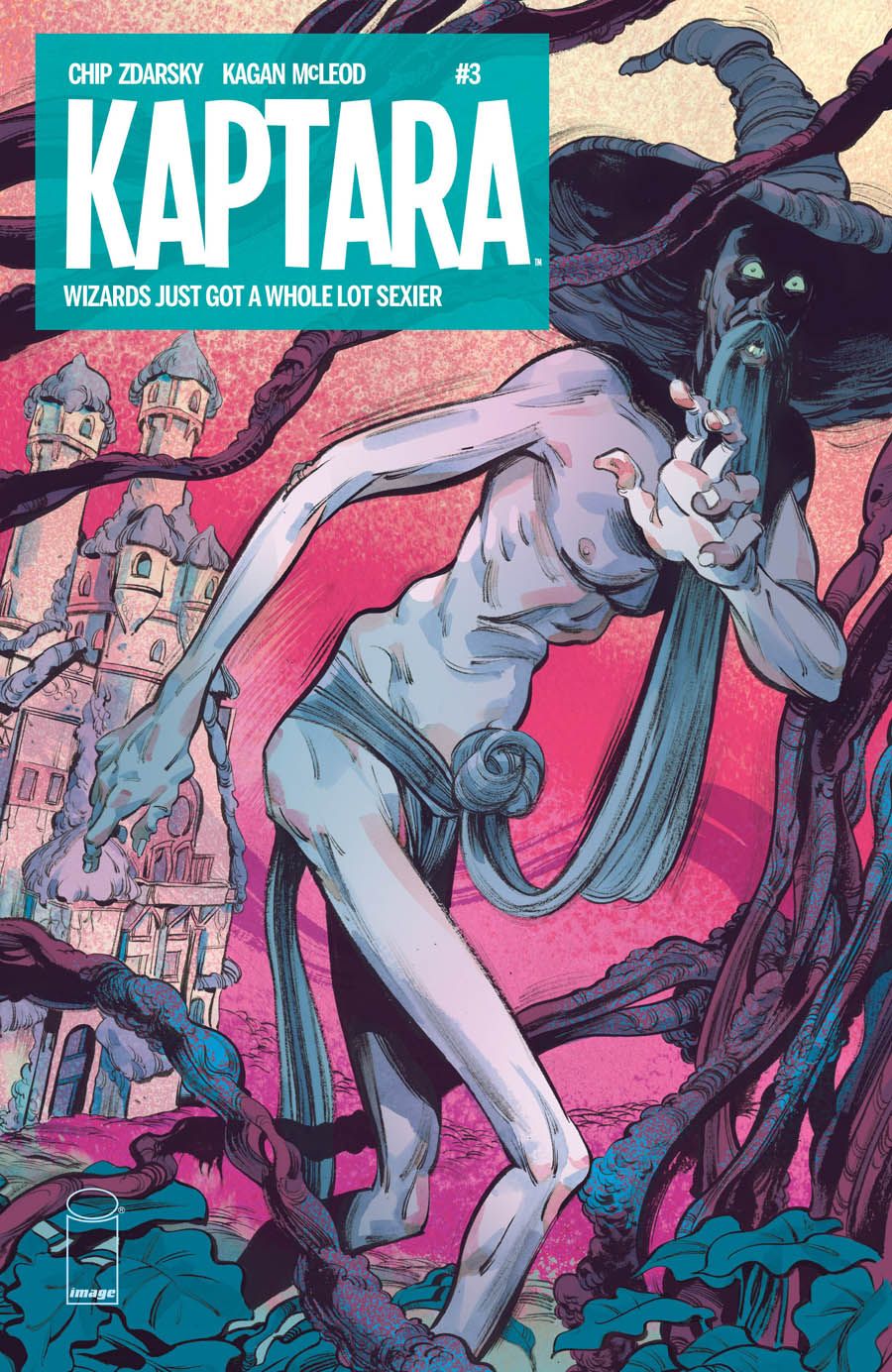Three issues into "Kaptara," and it's starting to feel like we've already seen these jokes before. That's frustrating because, at its core, there's some real potential in the series. However, as Chip Zdarsky and Kagan McLeod's "Kaptara" #3 continues to parody cheesy '80s cartoons within part of a greater epic quest, it feels like there's not enough else being offered just yet.
The basic idea -- Keith Kanga's journey on the strange world of Kaptara, slowly becoming a hero while encountering bizarre creatures in a semi-comedic setting -- is certainly a reasonable one. Zdarsky has proven himself to be a fairly funny writer (as well as artist), and I'm down with the idea of his reluctant hero. So far, though, nothing quite clicks. The characters all still feel very two-dimensional; no one's breaking out of the archetypes that Zdarsky set up as they were introduced. That's a shame, because I think that's what is keeping "Kaptara" from feeling attention-grabbing. There's not enough to hang on a gross parody of the Smurfs who keep claiming that they're being persecuted; the joke gets old remarkably quickly and, once you remove the humor, the book is fairly empty of content.
That's not to say that Zdarsky isn't trying. I did appreciate Keith and Manton's fake-out with the Glomps, and Keith's reasoning to Melvon on why it's best to just keep moving forward is a little amusing and applies a certain amount of logic. However, it's not enough to sink your teeth into just yet, any more than the continuing introductions of more rejected He-Man villains whose paths haven't actually intersected with our heroes'.
McLeod's art is loose and energetic, with some truly (and presumably deliberately) hideous pastel colors slapped onto them. McLeod's art is at its best when drawing the impossible, like Melvon regrowing his body in a manner that feels almost like water flowing. Some pages work better than others, though; for example, because of the shifts in perspective, it takes several pages to even realize that the Glomps are actually much smaller than the rest of the characters. Similarly to the script, it's not bad, but it doesn't feel like everything's quite clicking into place 100% of the time.
"Kaptara" #3 is a little underwhelming by the end of the issue. There still hasn't been enough of a break-out moment in this series to turn this book into a must-read or even enough to make it stand out in a sea of great comics. "Kaptara" has a lot of potential behind it, and I hope that it eventually rises to the occasion appropriately. For now, "Kaptara" #3 and the series as a whole feel like it isn't quite cutting it.

